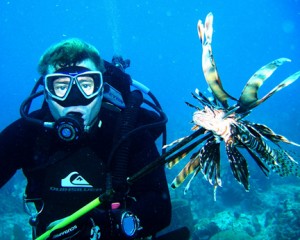
Spear fishing tournament
The Emerald Coast Reef Association is hosting a lionfish tournament Sept. 14 – Oct. 13, 2013. Registration is $25.00 per two person team. Rules are posted here: www.ecreef.org or download here: 2013 Tournament Rules
Grand Prize: $2,500.00
1st Place: $1,000.00
2nd Place: $750.00
3rd Place: $500.00
Largest Fish $100.00
Smallest Fish $100.00
Best Lionfish Video: $200.00
Registration locations:
Scuba Tech ~ Destin
Emerald Coast Scuba ~ Destin
Divers Emporium ~ Crestview
Discovery Dive World ~ Valparaiso
Online @ www.ecreef.org, use donate button.
Tournament Chairperson is Candy Hansard candy@valp.net
Click here to learn more about the invasive lionfish.
About Emerald Coast Reef Association:
ECRA mission is to improve the fishery in the Gulf of Mexico by providing habitat and evaluating the effectiveness of Artificial Reefs.
Why should you be concerned about lionfish?
For every 100 lionfish removed from our fishery, we are preventing approximately 200 MILLION lionfish eggs from being released into our waters. Lionfish eggs are venomous which discourages predation by our native species. When the fry hatch, they are armed with venemous spines that protect them from predation during their life time. Unlike our native fish, lionfish have an extremely high survivability rate because our fish do not eat their eggs or fry. Lionfish have no natural predators in our waters and it is very rare for them to bite hooks so, scuba divers are our only hope for saving our fishery from the lionfish who, according to the FWC and NOAA scientists are eating 56 species of our native fish including Red Snappers, Groupers and Triggerfish. Research has shown lionfish are eating our prey fish at unsustainable rates. During stomach content surveys, they have discovered up to 30 baby fish in the stomach of a single lionfish. Dwindling populations of prey fish means less food to support our native fish populations.
